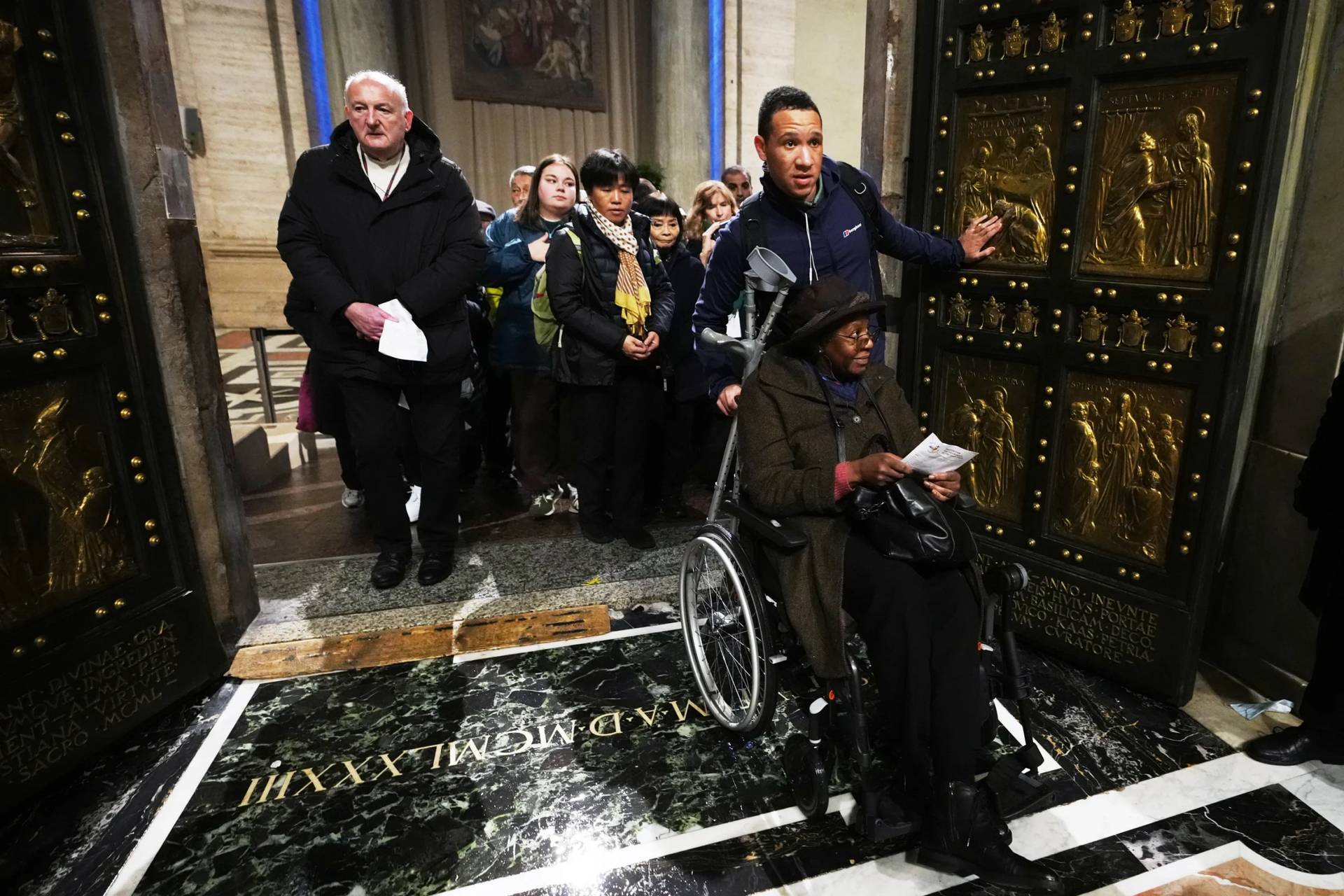Pope Francis once again spoke about anti-Christian persecution on Sunday, both active and passive, defining it as the risk of being missionaries.
“We pray for our brothers and sisters who are persecuted, and praise God because, despite this, they continue to testify to their faith with their courage and fidelity,” Francis said to thousands who gathered in Rome’s St. Peter’s Square for the weekly Sunday Angelus address.
Francis also recalled a specific example of martyrdom at the end of his remarks. Archbishop Teofilius Matulionis of Lithuania was imprisoned three times during his life by the Soviets and eventually killed in 1962 at the age of 90. He was beatified on Sunday in his native country.
“We give praise to God for the witness of this strenuous defender of the faith and of the dignity of man,” the pope said. He then asked the crowd in St. Peter’s Square for a round of applause for Matulionis and the Lithuanian people.
The example of those who are being persecuted, the pope said, “helps us not to hesitate in taking position in favor of Christ,” being witnesses in every situation, “even in seemingly peaceful contexts.”
This absence of hostility and tribulation, Francis continued, can be a “test”: being “sheep in the midst of wolves.”
Being missionaries amidst people who don’t want to be awakened from their “worldly stupor,” preaching the Gospel against “ephemeral truths,” can make Christians seem “annoying” and “not good.”
But even in these situations, Francis continued, God says “Do not be afraid!
“Always, when we have some tribulation, some persecution, something that makes us suffer, we hear the voice of Jesus in our heart: ‘Do not be afraid! Do not be afraid, go forth! I am with you!’”
Francis went on to call on Christians not to be afraid of mockery and mistreatment, nor afraid of being ignored.
There are so many, he said, who when “’face-to-face’ honor you but ‘from behind’ fight the Gospel.”
“We all know them,” Francis said.
The pope was reflecting on Sunday’s Gospel, in which Jesus calls on his disciples to be missionaries, preparing them to face “tribulations and persecutions.”
Being missionaries, the pope said, is not “doing tourism,” and the disciples didn’t have their success guaranteed: “They had to consider the possibility of being rejected, and of being persecuted. This is frightening, but it’s the truth.”
Yet these challenges, Francis continued, are part of the missionary work, as they are a way to verify the authenticity of one’s faith.
Though he gave no examples, Christians today represent the most persecuted religious group in the world, with an estimated 200 million people facing active persecution on a daily basis.
Though it’s often associated with countries where persecution has been ongoing for decades, such as several countries in the Middle East, North Korea or China, examples of anti-Christian violence are easily found elsewhere.
For instance, on the early hours of Friday morning someone tried to burn down the chapel of Madrid’s Autonomous University, throwing a Molotov bomb into it. Three windows were broken, an image of St. Joseph which was inside was broken, and several benches were burned.
Outside of the building, with red paint, an unknown person wrote “The only church that illuminates is one that burns.” The church had already been attacked in June 2016, when people burst into it and left anti-Catholic remarks.












